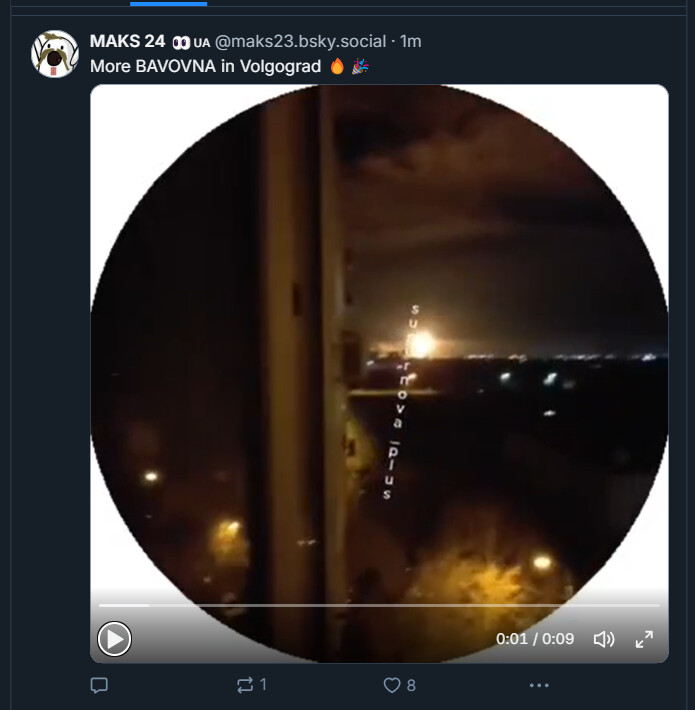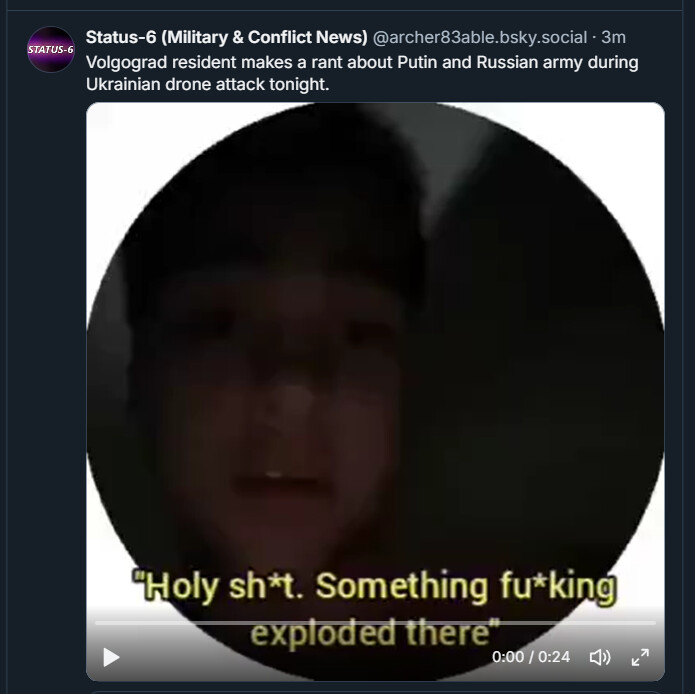The Economist
Amid talk of a ceasefire, Ukraine’s front line is crumbling
An ominous defeat in the eastern town of Velyka Novosilka

Photograph: Getty Images
Jan 27th 2025|KYIV
THE FINAL battle for the small Donbas town of Velyka Novosilka dragged on for six days, though the outcome was obvious long before that. Things became critical early in the new year, when Russian troops took over villages immediately to its north-east and west, pinching the Ukrainian defenders on three sides. By January 23rd the narrow corridor to what had become a nearly-isolated pocket had become impassable. The order to retreat came as soon as a mist descended. It was a nightmarish task that had to be completed on foot, under drone-filled skies, and across a river. The evidence of triumphant Russian propaganda channels suggests that many failed to make it.
Russia’s small victory in Velyka Novosilka (population just 5,000 before the war) followed a familiar pattern: relentless infantry assaults, devastating casualties, collapsing Ukrainian defences, and their eventual retreat. The immediate focus for the units that had been fighting there will now probably shift back to Pokrovsk to the north, a much-bigger logistical hub that Russia has been attacking at various intensities for the past six months. The fighting there has already prompted the Ukrainians to abandon a crucial coking-coal mine—one that previously provided half the needs of the domestic metallurgy industry. Russian forces are also advancing nearby towards the site of useful lithium-ore deposits.
Read more of our recent coverage of the Ukraine war
The Kremlin’s plan probably depends on where it can make quick progress. The minimum requirement of its “special military operation” appears still to be occupying the entirety of the Donbas region (comprising the provinces of Luhansk and Donetsk), regaining control of Russia’s own Kursk region, which Ukraine has partly occupied, and holding on to the “land bridge” it seized in the early stages of the war connecting Crimea to Russia. In Kursk, Russia has yet to regain the initiative, despite having deployed a force that is supplemented by North Korean fighters and, at 62,000, is perhaps three times larger than the Ukrainian grouping. In the Donbas, meanwhile, driving Ukraine out of the remaining cities, which are well-defended, will not be easy. The open fields immediately west of Pokrovsk, and a psychologically damaging push into Dnipropetrovsk province, may prove more enticing. “They probe for our weak points,” says Andriy Cherniak, a military-intelligence officer. “And then they mass force wherever they have tactical success.”
The modern battlefield—dominated by drones that spy, stalk and strike—is rapidly changing the nature of the fighting. In Velyka Novosilka, for example, armoured vehicles played a minimal role. “One of our tanks crept out near the front lines,” says Captain Ivan Sekach, an officer with Ukraine’s 110th brigade defending the town. “Ten drones attacked, setting it alight almost immediately.” The fighting instead was done by infantry—small Russian groups of three, four, five, sent forward in waves. Most met a swift and bloody end. But some managed to establish new positions and move the fight closer, forcing the Ukrainians to retreat.

Map: The Economist
The Russian tactics are not dynamic, but are causing Ukraine no end of bother. Put simply, Russia has the infantry and Ukraine does not. Issues with mobilisation and desertion have hit Ukraine’s reserves hard. “We struggle to replace our battlefield losses,” says Colonel Pavlo Fedosenko, the commander of a Ukrainian tactical grouping in the Donbas. “They might throw a battalion’s worth of soldiers at a position we’ve manned with four or five soldiers.” The brigades that make up the Donbas front line are consistently understaffed, under pressure, and cracking. The front line keeps creeping back. “We no longer have tactics beyond plugging holes,” says “Kupol,” the nom de guerre of a now-retired commander who until September led a brigade fighting in eastern Donbas. “We throw battalions into the chaotic mess and hope we can somehow stop the grind.”
The world’s focus has shifted to negotiations that have yet to happen; on the contradictory signals from the Trump administration that one day look positive for Ukraine, and the next less so. For those doing the fighting, the agenda is less abstract. As long as the front line keeps moving, Mr Putin appears to have little reason to compromise. The Russians will not run out of weapons any time soon, says Mr Cherniak, the intelligence officer. “They have at least a year, possibly two, to continue fighting as they have been.” The military-industrial complex remains a “sacred cow” for the Kremlin, he continues, and will be protected from possible economic headwinds, inflation, or sanctions. North Korea is meanwhile stepping in to supply items that are in short supply, such as gun barrels and artillery systems. “Russia has shown it can function in a completely closed cycle.”
Three years into its grinding attritional fight, it is still unclear if Russia can turn its many tactical gains into something bigger—enough to press deeper behind Ukraine’s weakening lines and to cause real worry. Mr Cherniak says the evidence so far suggests that this is unlikely. “We see their reserves, their missiles, their armour—and it’s not enough. Not yet.” Captain Sekach thinks luck may also have played a role. In Velyka Novosilka, he says, Russian armoured columns on more than one occasion broke through and got behind Ukrainian defences, but without realising it. Lost and disoriented, they turned back. “The Russian army doesn’t reward smart people, that’s my only explanation,” he says. “But we can’t count on it staying that way.” ■




